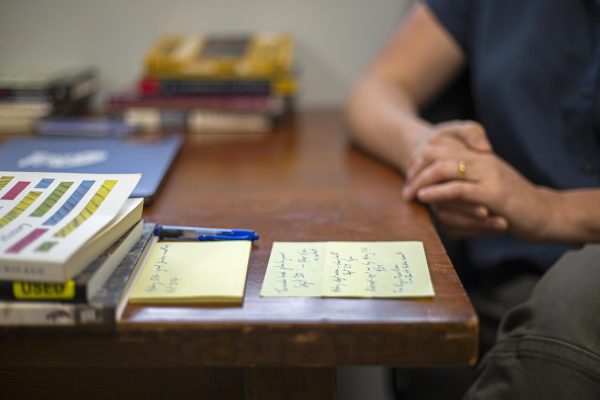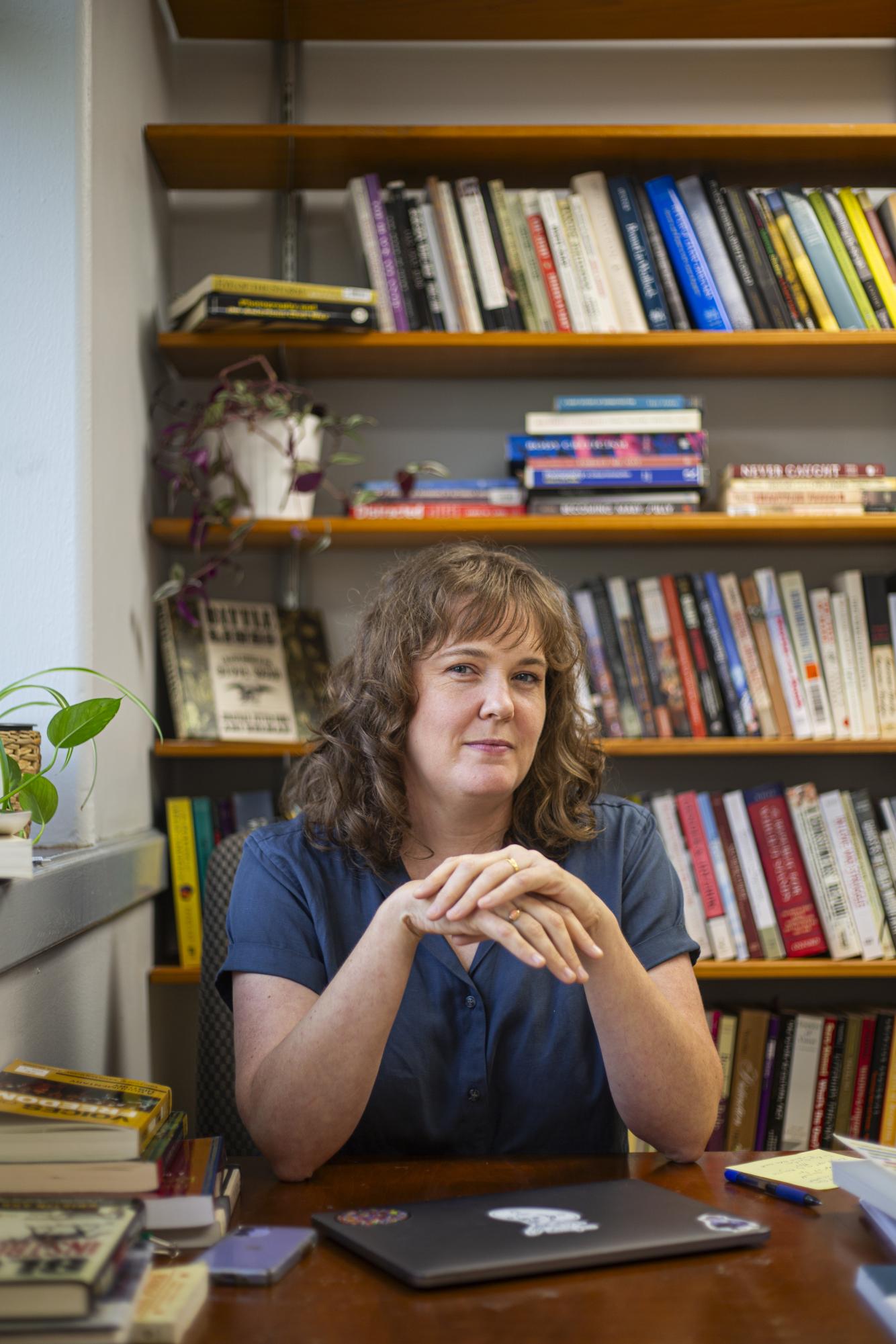Katherine Lennard is a U.S. historian who studies the culture in the wake of the Civil War. But she certainly didn’t plan to be.
Lennard studied costume design at The Theatre School of DePaul University in Chicago. She found herself wanting to understand the characters and their clothing on a deeper level.
“The stuff that I wanted to do really was know more about the characters that I was dressing, I was … doing all this research and really trying to get into what are the social conditions,” she said. “… why are they wearing these clothes and how does this communicate about the world that they live in?”
Her love of learning about historic clothing was what led her to studying costume design, and ultimately, this love led her to become a researcher.
“I’ve actually always loved this, and this has always been thinking about historic dress as part of why I wanted to be a costume designer,” Lennard said. “There was that pivot of like okay, thinking academically about reading images, thinking academically about what does it mean to look at something? How are we looking at something right now differently than people did?”
From then, she received a master’s of arts in Visual and Critical Studies from the School of the Art Institute of Chicago and a doctorate in American Culture from the University of Michigan.
Her research is primarily focused on the Civil War and its impacts on our culture.
“I’m really thinking about the Civil War as a period of time that people are living through,” Lennard said. “And Reconstruction is a period of time that people are living through and trying to make worlds under major constraints.”
Her first book grew from her master’s dissertation, which explored the impact of the Ku Klux Klan on American life through their uniforms.

When asked how she landed on the Ku Klux Klan “on accident,” she chuckled.
“The product was my dissertation project on the Ku Klux Klan robes, and really it was because I found a manufacturer’s tag and a 1920s Ku Klux Klan robe,” Lennard explained.
She now works closely with designers for television and film to help find costumes and organize historical context to provide outfits.
“You’re kind of doing a forensic analysis of what’s actually happening,” Lennard said. “So that’s really fun, because that’s really specific. We also do stuff sometimes where designers say like, I need you know, I’m doing a project on set in a particular place in time and we need inspiration for this thing.”
Lennard is currently working on her second book examining the conspirators about former President Abraham Lincoln. Ex-Confederate soldier Lewis Powell was one of the conspirators in John Wilkes Booth’s plot to assassinate Lincoln in efforts to overthrow the government.
“After spending a lot of time thinking about the history of [the] Civil War or the history reconstruction, legacies of both of those conflicts into the US, both of those historical moments really into the 20th century,” Lennard said. “It’s been really interesting to revisit that material and think about Confederate memory, family history.”
She was named the Frockt Family Chair of History in April. The position is named after Richard Frockt, who served on the WKU Board of Advisors from 2002–17 and was on the WKU Foundation Board of Trustees from 2004–12.
Frockt is a lifetime member of the WKU Alumni Association, and he is recognized as a member of the Henry
Hardin Cherry Society and the Society of 1906 for his gifts to the university.
As the Frockt Chair, Lennard’s position focuses on her own research and teaching students.
“It’s really about how having scholars that are doing interesting research helps students get excited,” she said.
She is currently teaching two classes on the Civil War and reconstruction and history of the U.S. to 1865.
“Everybody’s so generous and really interested in student education and really interested in community and I don’t think that’s true everywhere,” she said.
Now she is settling in at WKU. In August, she moved into her office in Cherry Hall. Her bookshelves are home to titles such as “Fashion Victims,” “The New Jim Crow,” and “Photography of the Civil War.”
She is originally from Cincinnati, Ohio. She – along with her husband and 3-year-old son – are learning their way through Bowling Green.
“I think there’s so many really good things about college towns, especially with a little kid,” Lennard said. “It’s just been, you know, my kid thinks that the business school construction site is his construction site. He spent all of his time just digging in the dirt and he’s obsessed with the caves.”
Lennard said she is lucky to be at WKU.
“I feel really lucky to get to do this stuff,” Lennard said. “I’m excited to get to do it here.”
Engagement Editor Debra Murray can be contacted at [email protected]




